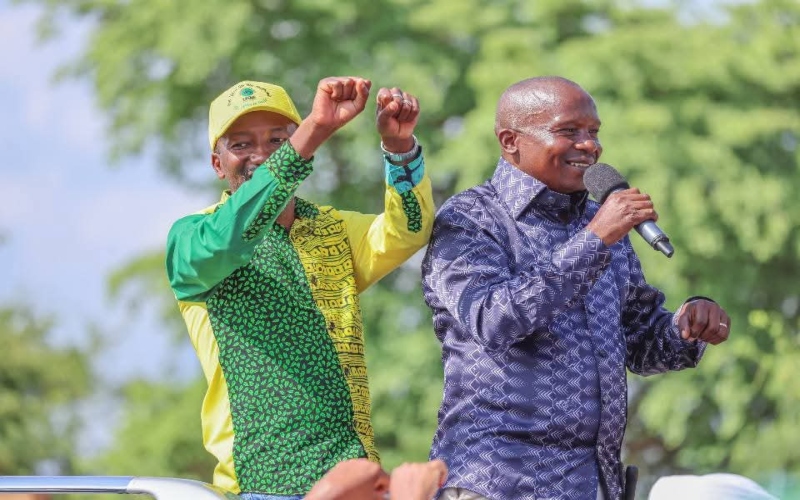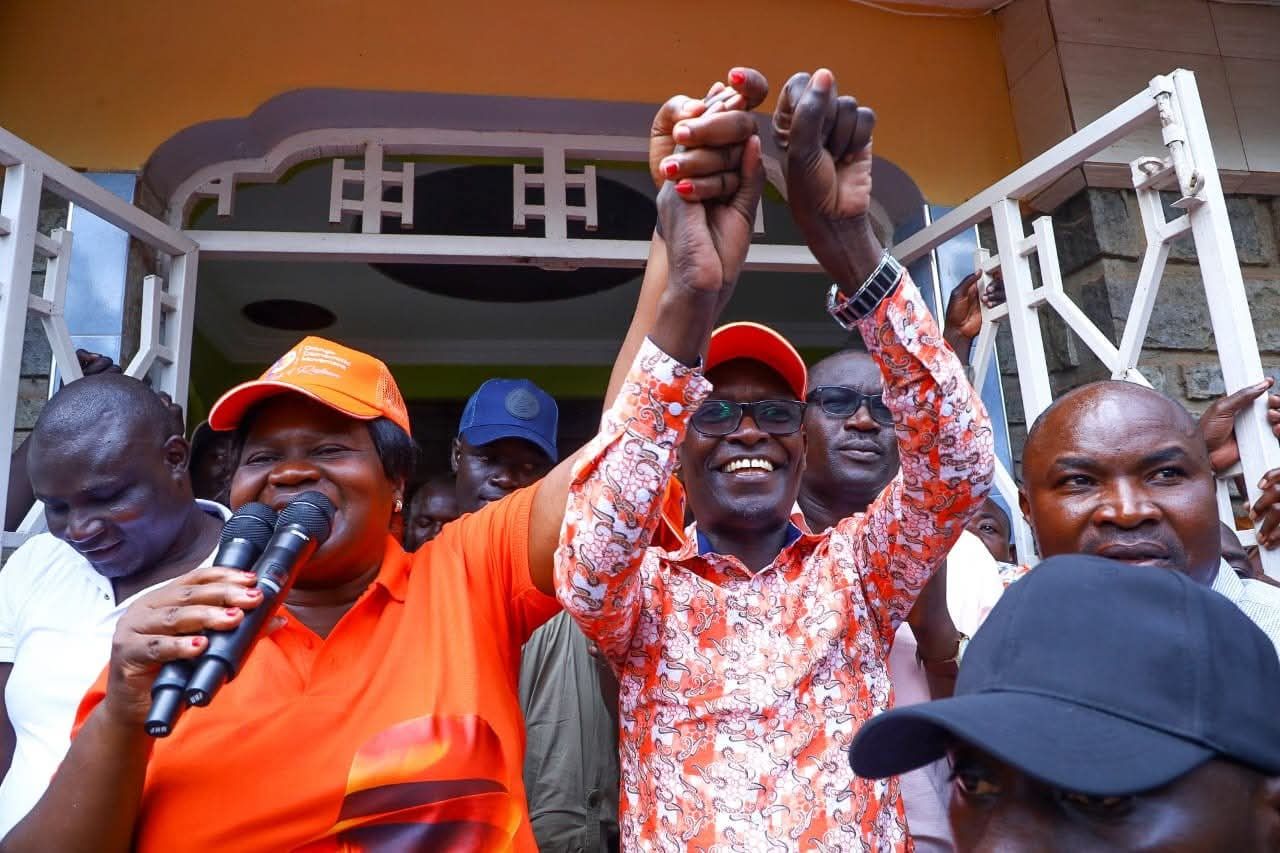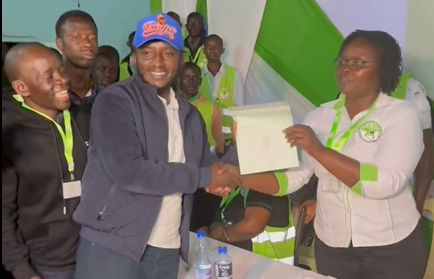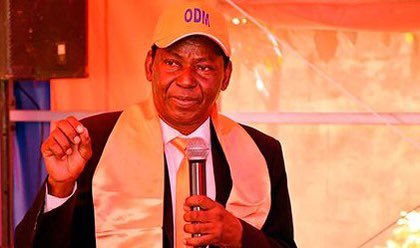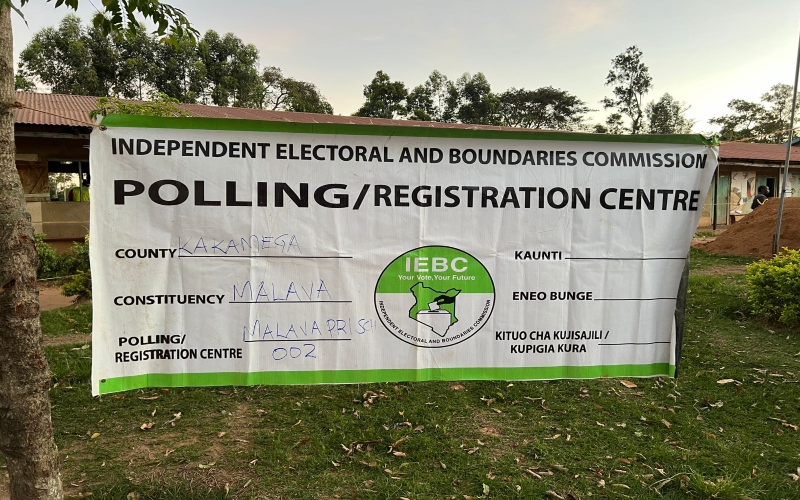Nairobi, Kinshasa mistrust fueling diplomatic row
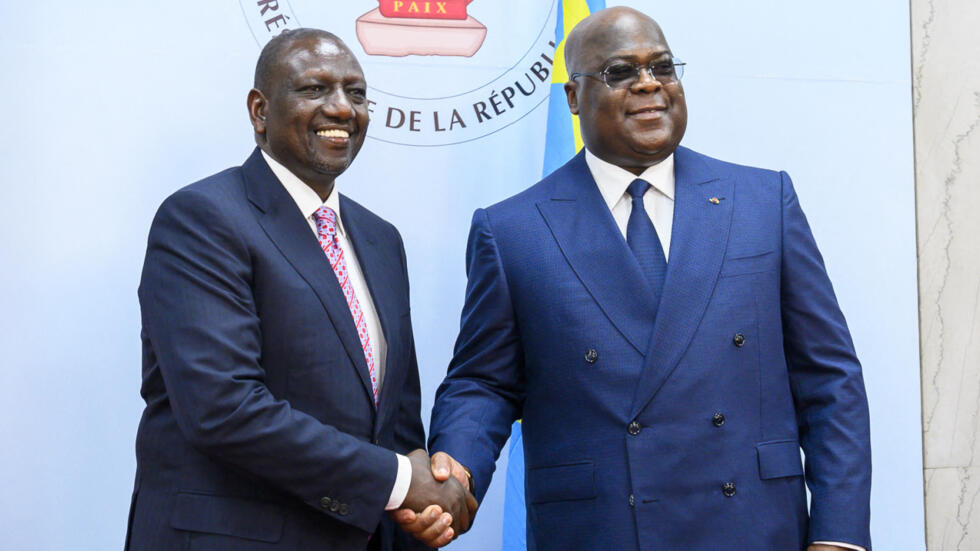
In February 2022, just months before the highly anticipated presidential election, Kenyan Deputy President William Ruto, now President, drew criticism from Congolese online communities for remarks deemed derogatory
Tensions between Kenya and the Democratic Republic of Congo (DRC) have escalated recently, marking a sharp departure from years of growing economic and military cooperation.
The catalyst for this shift came with the suspension of Kenya Airways flights to Kinshasa, prompted by the detention of two airline employees by Congolese military intelligence.
More To Read
- M23 rebels hands over minors taken from conflict zones in North Kivu, DRC
- UN decries ‘truly horrific’ massacres in DR Congo
- MONUSCO condemns ADF attacks that killed 89 civilians in North Kivu
- Rwanda, DR Congo talks move into ‘phase two’
- Truck that overturned in Uasin Gishu was ferrying natural rubber latex to DRC
- Over 5,000 Rwandans stream back from DR Congo after Qatar peace agreement
President Ruto's recent encounter with Congolese President Felix Tshisekedi in Dar es Salaam did little to ease the mounting tensions.
While attending the 60th-anniversary celebrations of Tanzania and Zanzibar's union, the leaders briefly engaged.
However, back in their respective capitals, the detention of the Kenyan Airways employees strained diplomatic relations.
The detainees, a Kenyan and a Congolese national were apprehended for their involvement in an incident concerning the attempted export of $8 million (Sh1billion) in banknotes, purportedly unfit for circulation.
The funds were destined for the reserve federal office in New York but were intercepted by Congolese security forces at N'djili International Airport, reportedly concealed in crates.
This rift marks a huge downturn in the once-promising relationship between Kenya and the DRC.
When did things start going wrong?
In February 2022, just months before the highly anticipated presidential election, Kenyan Deputy President William Ruto, now President, drew criticism from Congolese online communities for remarks deemed derogatory.
During a campaign rally in Nyeri County, central Kenya, Ruto was captured in a video pledging to boost investment in livestock farming so that Kenyans could export their products to the Democratic Republic of Congo (DRC).
He remarked that despite the DRC's large population of 90 million, they lacked domestic cows and had to import milk.
Ruto's comments didn't end there. He also made remarks about the way Congolese people dress, referring to them as "wanavaa long'i kwa tumbo" (they wear high-waisted trousers).
He illustrated his point by mentioning Congolese musicians often seen in music videos wearing high-waisted trousers, and are well-known in Kenya.
Despite Ruto's statements being made thousands of kilometres away, they ignited a firestorm of outrage in Kinshasa.
Journalists, activists, politicians, and citizens across the DRC condemned the remarks as disrespectful.
Ms Francine Muyumba, a Congolese senator and chairperson of the foreign relations committee, said: "This is unacceptable, with all due respect there is a need to withdraw this statement. If DRC did not have a single cow how could Kenya sign economic deals with DRC; Equity BCDC is currently making money in Congo. This is an insult."
Nairobi deployed its envoy in Kinshasa George Masafu to quell tensions. He said there have been "negative reactions" to remarks made by Ruto.
Masafu, who has been recalled back in Nairobi said in a statement that the Embassy had updated Nairobi on the reactions from the business community in Kinshasa, who demanded assurance of mutual respect.
"The Kenyan Embassy wishes to reiterate that the government and the people share a deep and respectful; historical relationship with the government and the people of DRC. This relationship stretches back to the independence of our respective countries," the statement said.
And when Ruto assumed the presidency, Kinshasa's congratulations were notably delayed, a move pundits attributed to the derogatory remarks made earlier and the close ties between Ruto's predecessor, Uhuru Kenyatta, and opposition leader Raila Odinga.
Kenyatta had convinced Tshisekedi to consider joining the East African Community (EAC), citing various reasons, notably the need to address the deteriorating security situation in eastern DRC.
Initially, there were concerns in Kinshasa that joining the regional bloc would force them to engage with perceived "intruders" at the table, potentially exacerbating existing issues.
During this period, Kenyan economic interests expanded significantly in the mineral-rich country, with strong support from the Tshisekedi administration.
By the time DRC became a member of the regional bloc in April 2022, Kenya's Equity Bank had already established a presence in Kinshasa through a successful merger with Banque Commerciale du Congo (BCDC), forming Equity BCDC.
Equity BCDC emerged as the second-largest bank in the country, boasting a substantial balance sheet of $2.5 billion and a widespread network comprising 74 branches, 214 ATMs, 13 local dedicated desks, 3055 agents, and a customer base nearing one million, as reported by Equity Bank.
In September 2021, Jambo Jet commenced operations in North Kivu Province capital, Goma in eastern Congo, becoming the first low-cost carrier to fly the route and the only direct flight between Nairobi and the city.
DR Congo President Félix Tshisekedi expressed discontent with Maj. Gen. Jeff Nyagah's decision to refrain from confrontation with the M23 rebels by the East African Community Regional Force under his command.
The Kenyan military officer, initially assertive upon his appointment as commander, resigned citing physical threats from "mercenaries" and lamented facing political pressures.
Kinshasa objected to the EACRF's role as a buffer force, preferring direct military action over political negotiations.
During a meeting in Bujumbura in February 2023, President Félix Tshisekedi admonished Nyagah in the presence of President William Ruto, urging him "not to aid the M23".
"You are not there to assist the M23," Tshisekedi asserted.
Nyagah's departure exposed tensions between Nairobi and Kinshasa, prompting President Ruto to appoint Maj. General Alphaxard Kiugu as the new commander.
Kinshasa protested Nairobi, condemning the unilateral appointment of a new commander without consultation and suggesting a rotational role.
The diplomatic rift between Kenya and the DRC escalated significantly in December last year with the launch of the Congo River Alliance at the Serena Hotel in Nairobi.
This alliance, characterised as a political-military entity, included the participation of M23 rebels and other armed groups with the aim of undermining the government in Kinshasa.
The presence of Bertrand Bisimwa, the deputy leader of the M23 rebels, in Nairobi sparked outrage in Kinshasa.
The Congolese government condemned Kenya for permitting activities involving a group designated as "terrorist" and accused Nairobi of allowing subversive actions aimed at destabilising the DRC.
Patrick Muyaya, the spokesperson for the Congolese government, stated that such actions would not go without consequences.
He demanded an explanation from Kenya regarding its involvement in accommodating activities deemed detrimental to the stability of the DRC.
In response, Kinshasa recalled its ambassador to Nairobi for consultations and summoned the Kenyan envoy stationed in the Congolese capital.
Nairobi appointed a new ambassador-designate to the DRC, Colonel (Rtd) Shem Amadi who arrived in Kinshasa at the time of the meltdown.
The retired Kenya Air Force officer hasn't yet presented his credentials.
Top Stories Today


